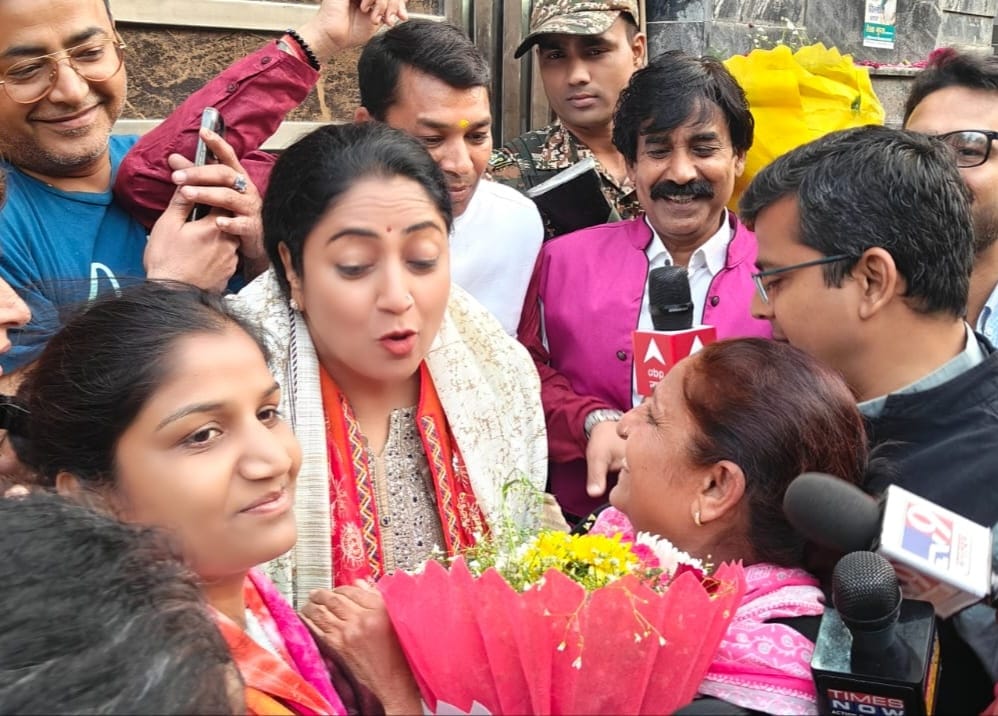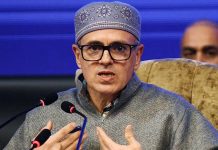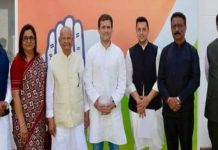
Just days into her tenure as Chief Minister, Rekha Gupta’s efforts to unify the Bharatiya Janata Party’s Delhi unit remain a work in progress. The factionalism that has long defined the party cannot be erased overnight, but her proactive outreach signals a commitment to stability. Her visit to Late Madan Lal Khurana’s home and active engagement with senior leaders has earned her goodwill, in a short time.
Gupta was sworn in as the ninth Chief Minister of Delhi, marking the BJP’s triumphant return to power in the national capital after a 27-year hiatus. A first-time MLA, Gupta’s meteoric rise to the top post was as surprising as it was historic, she became the fourth woman to helm Delhi’s government. However, her ascension has not been without challenges.
The BJP’s Delhi unit, long plagued by factionalism, has presented an immediate test of her leadership. In her initial days as CM, Gupta has embarked on a deliberate outreach campaign to unify the party’s fractured factions, reaching out to senior leaders and visiting the homes of political stalwarts, even as some within the party question her credentials as a junior leader, sources said.
The Delhi BJP has historically been a cauldron of competing interests, with factionalism simmering beneath the surface despite the party’s recent electoral success—securing 48 out of 70 seats in the 2025 Delhi Assembly elections. Senior leaders such as Parvesh Verma, who defeated AAP supremo Arvind Kejriwal in New Delhi, Vijender Gupta, a three-term MLA and former Leader of Opposition, and Satish Upadhyay, a former Delhi BJP president, were among the frontrunners for the CM post. Their sidelining in favor of Gupta, a political novice in legislative terms, stirred discontent among certain quarters.
Sources stated that whispers of dissent emerged, with some party members reportedly attempting to undermine her by highlighting her lack of experience. This internal friction threatened to overshadow the BJP’s mandate and posed a challenge to Gupta’s authority even before she could settle into her role.
However, Gupta has wasted no time in addressing these fissures. One of her earliest moves was a symbolic visit to the residence of Khurana, the BJP’s first Delhi CM (1993–1996). Khurana, a veteran who shaped the BJP’s early dominance in Delhi, remains a unifying symbol for the party’s old guard. Gupta’s visit, laden with respect for the legacy of the Khurana family, was a calculated gesture to win over senior leaders and their loyalists.
Sources close to the CM suggest that she sought to invoke Khurana’s legacy of grassroots connect and administrative acumen—qualities she aims to emulate as she navigates her tenure.
Beyond this, Gupta has actively reached out to other senior leaders within the party. Meetings with figures like Vijender Gupta and Parvesh Verma, indicate her intent to mend fences and build a cohesive team. Her approach has been one of humility and collaboration, emphasizing her reliance on the experience of seasoned leaders to complement her own organizational skills honed through decades with the Rashtriya Swayamsevak Sangh (RSS) and the Akhil Bharatiya Vidyarthi Parishad (ABVP). In fact, the strong backing of the Sangh has allowed her to approach all these issues with confidence.
“I am here to serve Delhi with the guidance of my seniors and the energy of our workers,” she reportedly said in one such closed-door meeting, signalling her willingness to bridge generational and factional divides.
Her outreach is not just about pacifying dissent but also about projecting unity ahead of a challenging tenure. Delhi’s governance model, with its overlapping jurisdictions between the state government and the Centre, demands a CM who can rally both party and bureaucracy.
Gupta’s success will hinge on her ability to take everyone within the party along. Delhi’s electorate, having handed the BJP a decisive mandate, expects swift action on promises like the Mahila Samridhi Yojana and infrastructure upgrades. If she can deliver while keeping the party’s factions in check, Gupta may well prove her critics wrong—transforming her “junior” status into a narrative of resilience and renewal for the BJP in Delhi.













